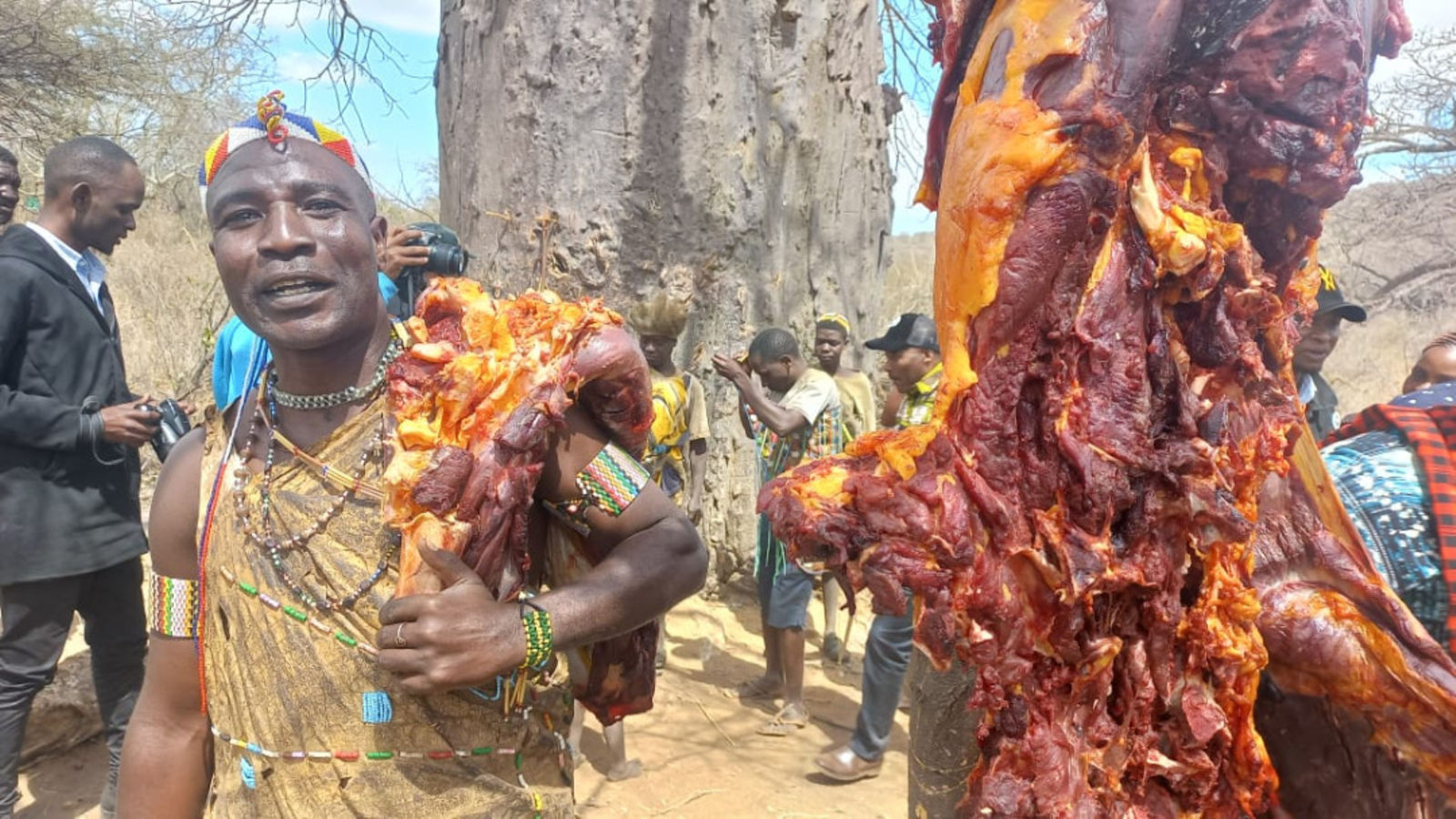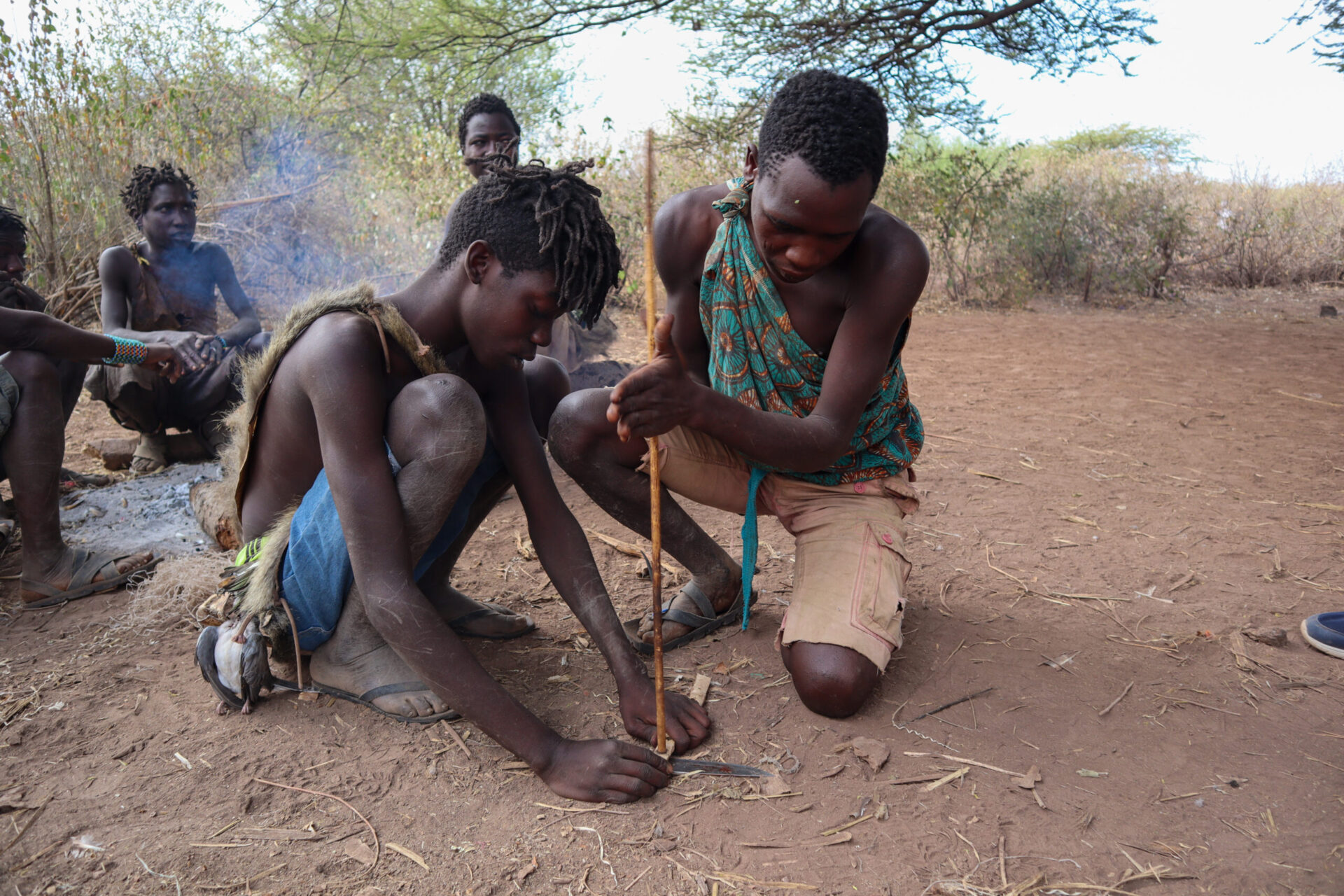The Hadzabe are an indigenous hunter-gatherer tribe that has inhabited the East African region, particularly in Tanzania, for thousands of years. Their unique way of life and cultural practices have fascinated anthropologists and travelers alike. The Hadzabe's unique way of life provides valuable insights into humanity's ancient past and serves as a reminder of the diversity and resilience of indigenous cultures. As the world continues to modernize, it is essential to protect and respect the Hadzabe's way of life, ensuring that their rich cultural traditions endure for future generations.

It is believed that Hadzabe population is around 1000 to 1500 updated in September 2021 by Tanzanian Government. The Hadzabe people's distinct lifestyle, culture, and traditions make them a remarkable and special group, contributing to the diversity and richness of human heritage on our planet. Their preservation and recognition as a unique cultural group are crucial for safeguarding cultural diversity and promoting mutual understanding among different communities.
Funny fact about Hadzabe during population census, the Government has to give them food (Meat) to convince them to stay home for participation. Hadzabe's life depends on day to day gathering and hunting for food, that means 1 day stay at home no meal for the family.

Here are some of important note you need to take about Hadzabe
Nomadic Lifestyle: The Hadzabe traditionally live a nomadic lifestyle, moving from one place to another in search of food and water. They do not have permanent settlements and build temporary shelters using sticks, leaves, and grass, allowing them to adapt to changing environmental conditions.
Hunter-Gatherer Society: Hunting and gathering form the core of the Hadzabe's subsistence strategy. The men engage in hunting, using bows and arrows poisoned with lethal plant extracts to bring down small game and occasionally larger animals like antelope or baboons. The women, on the other hand, gather wild fruits, tubers, and edible plants to supplement their diet.
Social Structure: The Hadzabe live in small, close-knit bands, each consisting of a few families. They have a relatively egalitarian social structure, and decision-making is often done through consensus within the group.
Language: The Hadzabe have their language, known as Hadza or Hadzane. It is a unique and complex language that does not belong to any known language family, making it an object of interest for linguists.
Traditional Knowledge: The Hadzabe possess an impressive wealth of traditional knowledge about the natural world. They are skilled trackers and can read signs in the environment to find water sources, locate animals, and identify edible plants.

Fire-Making: Fire plays a vital role in the Hadzabe's daily life. They are adept at making fire using sticks and dry grass, a skill passed down through generations.
Music and Dance: Music and dance are essential aspects of Hadzabe culture. They have distinctive musical instruments, including the thumb piano and drums, and use singing and dancing to celebrate various occasions and rituals.
Limited Contact with Modern World: The Hadzabe have had limited contact with the modern world until recent times. However, increasing external influences and pressures have led to changes in their way of life and culture.
Threats and Challenges: The Hadzabe face numerous challenges due to encroachment on their traditional lands, competition for resources, and limited access to education and healthcare. As a result, their way of life and cultural heritage are at risk of being eroded.
Efforts for Preservation: Efforts are being made to preserve Hadzabe culture and support their sustainable way of life. Some organizations work with the Hadzabe to promote their rights, conserve their land, and maintain their cultural heritage.

